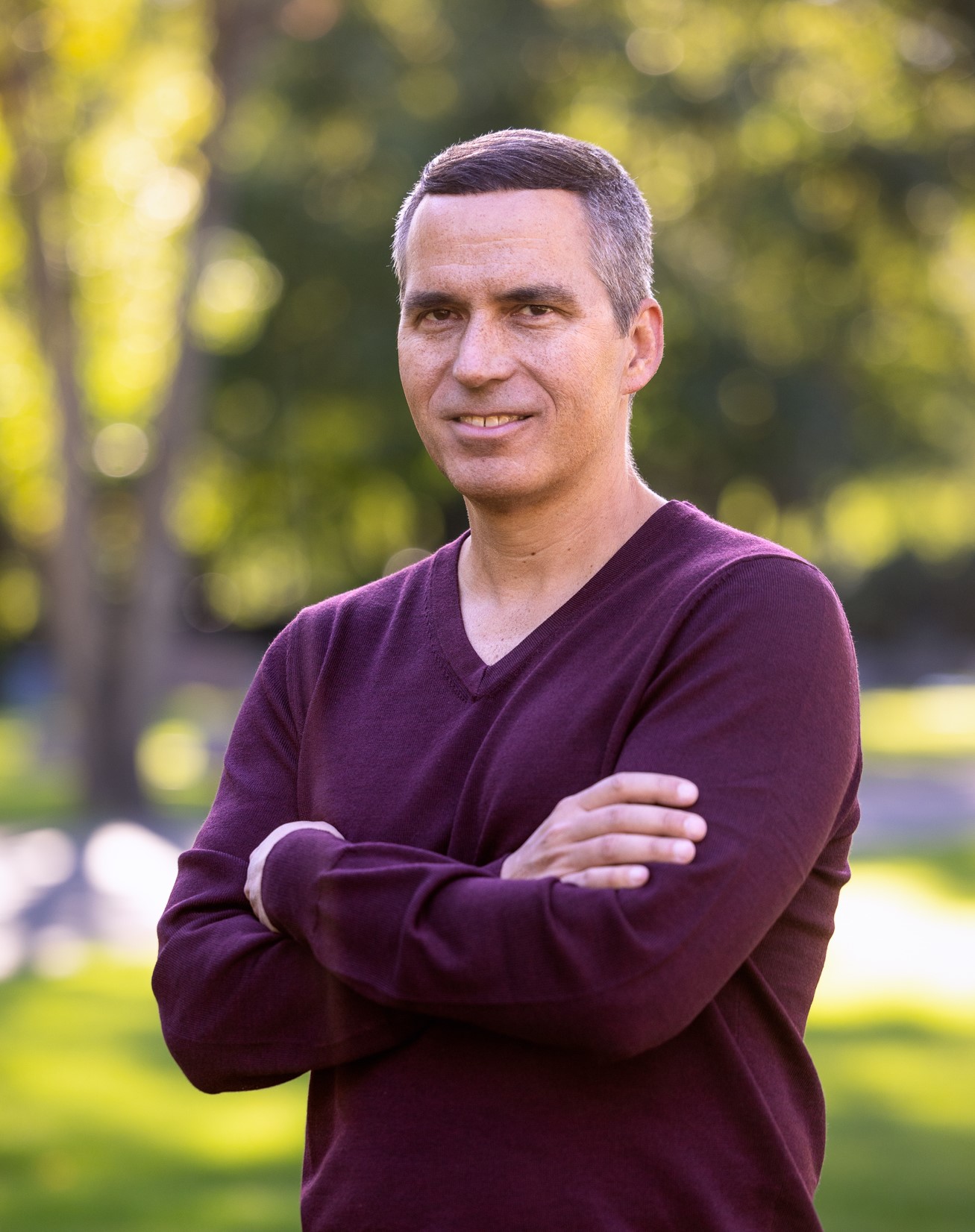
by Wilton H. Strickland
It feels like yesterday, but way back on October 2, 2000 I stood before the Third District Court of Appeal in Miami, Florida and was sworn in as a new attorney. I could hardly believe it because I almost wound up not going to law school in the first place. After college I took a year off and decided to join the FBI because foreign counterintelligence struck me as exciting. I sat for an exam in Spanish, listening to recorded conversations and translating them, and then waited months for the results. After a while I lost hope and started applying to law schools. On the very day I received my acceptance letter from the University of Virginia, the FBI informed me that I had passed! I laughed out loud and stuck with law school.
Three years later, there I was in Miami getting sworn in. It was an exhilarating moment that represented a new and challenging stage of my life. I would spend the next ten years practicing law in Florida, after which I made a radical change to spend ten years practicing law here in Montana. I’ve had some memorable experiences that taught me a lot and eventually led me to do what I do now, which is to provide limited services so that I can focus on what I enjoy most while spending more of my life away from the office. For those attorneys who manage to continue practicing full-bore for years and years, I admire you and enjoy helping those of you who become my clients. Perhaps some of my experiences resemble your own.
My First Steps
On my first day at work I was proud to see my name plate outside my office door. As I settled into my cushy new chair and relished the panoramic view of Biscayne Bay, the managing partner paid me a visit and instructed me to draft a complaint. “Of course,” I replied between gritted teeth. Despite three years of law school I had no idea how to draft a simple complaint. My first effort was rather embarrassing, but the partner took the time to walk me through it and explain how to get it right. I’ve drafted countless complaints since then and have trouble believing that it once felt so intimidating, but I suppose every skill worth having is difficult to master.
A few days later the partner asked me to find case law holding that a court-appointed receiver in one of his cases could tax costs to an opposing party. He insisted that the authority was out there and that I merely had to retrieve it. I spent hours poring over Florida Jurisprudence and the case books without any luck (yes, the firm had an actual library). Hours stretched into days, and I finally informed the partner that the power to tax costs emerged only in narrow circumstances not at issue in his case. He shook his head and swore that he remembered reading a decision with the holding he needed. I went back at it and felt a creeping sense of dread that I would never find the authority he was talking about. At long last I spoke to him again and explained there was no authority saying exactly what he wanted. He looked over what I had gathered and, reluctantly, admitted that he must have remembered it incorrectly. I exhaled.
Things got more exciting when I had to argue at my first hearing. In Florida virtually all motions have a hearing, whether on a simple 5-minute motion calendar or a longer special set (in Montana, hearings occur only upon request). I had obtained a default judgment against a party whose attorney chewed me out over the phone and vowed to have the judgment set aside. Having reviewed the file and all of the applicable authorities, I headed to the Miami-Dade courthouse and waited outside the judge’s chambers. Around the corner I overheard the opposing counsel (who was older and far more experienced) joke with a colleague about how he had to argue a hearing with some punk (me). We finally sat down before the judge, and the opposing counsel presented his motion in a manner filled with righteous indignation. When it was my turn, I calmly explained that the opposing counsel was using a lighter standard for vacating default judgments that are improperly entered; my default judgment was properly entered, so he was supposed to satisfy a heavier burden of establishing “excusable neglect” and a “meritorious defense” supported by affidavit, which he had failed to do. The opposing counsel tried to make his rebuttal but was persistently interrupted by the judge’s questions, which he had trouble answering. I remained totally silent and let him keep digging his own grave. Eventually, the judge denied his motion and left the judgment intact, meaning that the opposing counsel would have to pursue a full-blown appeal if he wanted to set aside the judgment. The look on his face was priceless.
Before long I had to take my first deposition, namely of a defendant in a case concerning copyright infringement and theft of trade secrets. I spent many hours reviewing the file, outlining questions, and cross-referencing them with exhibits. As things got going I meticulously went through my outline and asked the defendant all of my questions in the exact order I had prepared them. It wasn’t flowing well, and during a break the partner told me to relax and rest assured that I was smarter than the defendant and his attorney, so I shouldn’t worry. That helped a lot. The resulting transcript read beautifully and helped me prevail on my later motion for partial summary judgment, which led to a favorable settlement.
And, of course, there was my first trial. It was an acrimonious dispute between family members fighting over an estate, and I represented a party who allegedly had breached a contract with the decedent and taken her property. The opposing counsel was, for lack of a better word, sleazy. He often made faces while other people were talking and delighted in making gratuitous, personal attacks on witnesses. For whatever reason, the judge ruled in his favor on every motion no matter how favorable the law was for me. I decided to make a motion for directed verdict, which I prepared based on the lack of necessary evidence to support the claims against my client. During recess I paced back and forth in the men’s room rehearsing it, knowing that it was likely doomed to fail (these motions are often denied because judges fear being reversed on appeal, and this judge in particular was no friend of mine). I began the motion by stating, “Your honor, I know that motions for directed verdict are the most often made and the least often granted, but if any case deserves a directed verdict, this is it.” From there I made an impassioned and thorough argument for why the claims were baseless and must be disposed of as a matter of law, noticing from the corner of my eye that the opposing counsel was squirming and making faces again. The judge looked intrigued, but he denied the motion. From there the judge gave the opposing counsel free rein to design the verdict form in a lopsided way that guaranteed an adverse judgment, which was soon delivered. It was a disaster except for the fact that we had an excellent record for appeal. As I was preparing to leave the court for the last time, the opposing party approached me and told me that my performance was the best he’d ever seen and that he admired my intelligence and integrity. That meant a lot to me.
Disillusionment And Change
These early experiences were my first steps into a larger world that fascinated me and helped me grow for a long time. As time marched on, though, that world lost its luster.
I often found myself having to litigate against my own co-workers just to get things done, as fragile egos and competing priorities made efficiency almost impossible. Office politics are just as real in the practice of law as anywhere else, likely even more so, and I had no desire to play that game. All I wanted to do was excel for my clients. What I reluctantly learned is that I could ignore the game, but the game would not ignore me. The times I endured rumors, backstabbing, stealing credit for my work, and other indignities are too numerous to recount. On top of all that I made one of the worst mistakes possible when I became romantically involved with a paralegal. The office swiftly became a nightmare.
One day I was debating with a partner about the best way to handle client matters when he proclaimed, with no hint of irony, “Quality doesn’t matter.” I couldn’t believe that a grown man, let alone a professional, would utter those words. This was the last straw, so I concluded that the time had arrived to focus on excellence by working alone.
I launched my own limited practice devoted to researching, writing, and consulting. The intellectual side of the law always intrigued me the most, so here was my chance to immerse myself in it and find a new birth of freedom as my own boss. The real challenge, of course, was finding clients. My first year was brutal as I did everything I could think of to get my name out there while steadily eating away at savings. Eventually, I connected with enough attorneys from around the country to help them on their projects and make a viable business for myself. This has been the proudest achievement of my life, bar none.
The Journey Continues
Now I relish waking up every morning to see what projects await me. The attorneys I help do believe that quality matters, and it’s my pleasure to bring that quality to life for them and their clients. I’ve also had the privilege to offer my limited services to many non-attorneys, whether it’s to set up a business, prepare contracts and other documents, or advise them on intimidating legal issues. I do miss going to court and making oral arguments, but it’s a small price to pay for how much happiness I have found.
The greatest irony of all is that what I do now was considered eccentric when I began in 2013, but the world has been so convulsed since then that many other attorneys are following suit by stripping their practices down to the essentials to become lean and mean. Life is too short to be miserable, and the practice of law can make you miserable if you let it, so I encourage all attorneys to think outside the box and find a way to make the practice work for them.
Anyhow, it’s been an incredible twenty years. I took the road less traveled by, which has made all the difference, and I wish all other attorneys the best of luck on finding their own paths.


